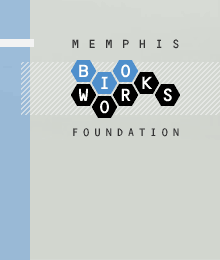
When Steve Bares talks, we should listen.
As head of the Memphis BioWorks Foundation, he is making things happen, effectively and methodically creating a major new industry for Memphis’ future.
That’s why his recent comments to The Commercial Appeal about a study of 50 cities caught our eye. While others were crowing about the study results that said Memphis is a “good deal” for biotech companies, because we ranked as the seventh least costly place for biotech companies to operate, Mr. Bares kept his eye on the ball.
Yes, low operating costs are a factor in attracting companies to Memphis, but he cautioned, “You can’t win by being the cheapest. You take the compliments where you can find them, but it’s going to take more than that to compete.”
For example, he explained, a city can be a cheap place to live, but that doesn’t mean people will move there, because it must have a quality of life that attracts new jobs, new people and new companies.
“We can’t compete by cheapest alone,” Mr. Bares said. “It is filling that gap…providing the infrastructure, the workforce and entrepreneurship…that’s the hole we have to fill.”
Halleleujah. Now that’s one of the most enlightened comments we’ve heard in months about what should be the economic development priorities of the Memphis region.
Most impressively, this is not just rhetoric. The BioWorks Foundation has based its vision, its plan and its action on lofty ambitions, and most importantly, on creating a quality city, quality workers and quality facilities. In this way, it’s one of the rarest organizations in a city that historically sells itself proudly on how cheap we are, how cheap our labor is and how cheap our land is.
Sadly, the cities that are succeeding in today’s highly competitive global economy are doing just the opposite. They are making investments in quality -- better workers, high-quality universities, an enriching quality of life and efficient, economical public services.
If we continue to sell ourselves on our cheapness, it is a race to the bottom. There is no way that as the global playing field becomes flatter and flatter that we can be cheaper than third world nations.
Our competitive edge must be based on a highly-skilled workforce and an infrastructure that links our businesses efficiently and seamlessly to the global marketplace.
It not a coincidence that the most expensive U.S. biotechnology cities in the study were San Jose, San Francisco, Middlesex/Somerset/Hunterdon, NJ, Princeton, NJ, Boston, New Haven and Philadelphia, are also leaders in the biotechnology industry. They are leaders because they invest in quality and workers and companies want to move there.
The cities sharing top billing for their cheapness with Memphis are Sioux Falls, Shreveport, Norman, OK, Birmingham, New Orleans and Indianapolis. That doesn’t sound like the list of peer cities that we want to be included in, and our pride in being in such a list taps into a feeling of unworthiness that undergirds much of our civic psyche.
That feeling is thankfully not part of the BioWorks Foundation, and although it’s best known for imploding the old Baptist Hospital, it has quietly developed the most impressive business vision in Memphis since FedEx was created.
In staking out Memphis’ claim to the biotech industry with its companies valued at $225 billion, the way that the Foundation is doing its work also offers lessons to our economic development experts. Rather than the BioWorks Foundation is leveraging our city’s unique strengths to create a distinctive niche for the future. Among those strengths are our position as leaders in orthopedics and musculoskeletal implants, St. Jude Children’s Research Hospital and FedEx and its place as the inventor of global commerce.
And most of all, the BioWorks Foundation – unlike many cities - resisted the temptation to build the future on a green field policy. Instead, it chose to transform the old Baptist Hospital site into a world-class research park in an urban setting. The Foundation opted to stay in Midtown, where it founded the Memphis Academy for Science and Engineering, where it has supported the redevelopment of Lamar Terrace, where it has partnered in training programs with Southwest Tennessee Community College and where it has joined with University of Tennessee Health Sciences Center to attract major national grants and to commercialize research.
When completed, the economic impact of the biotech district is projected to be about $2 billion and create new jobs at all skill and pay levels. And most of all, it’s doing it by selling Memphis as a quality place to live and work, and that may be the most important product of all.



No comments:
Post a Comment